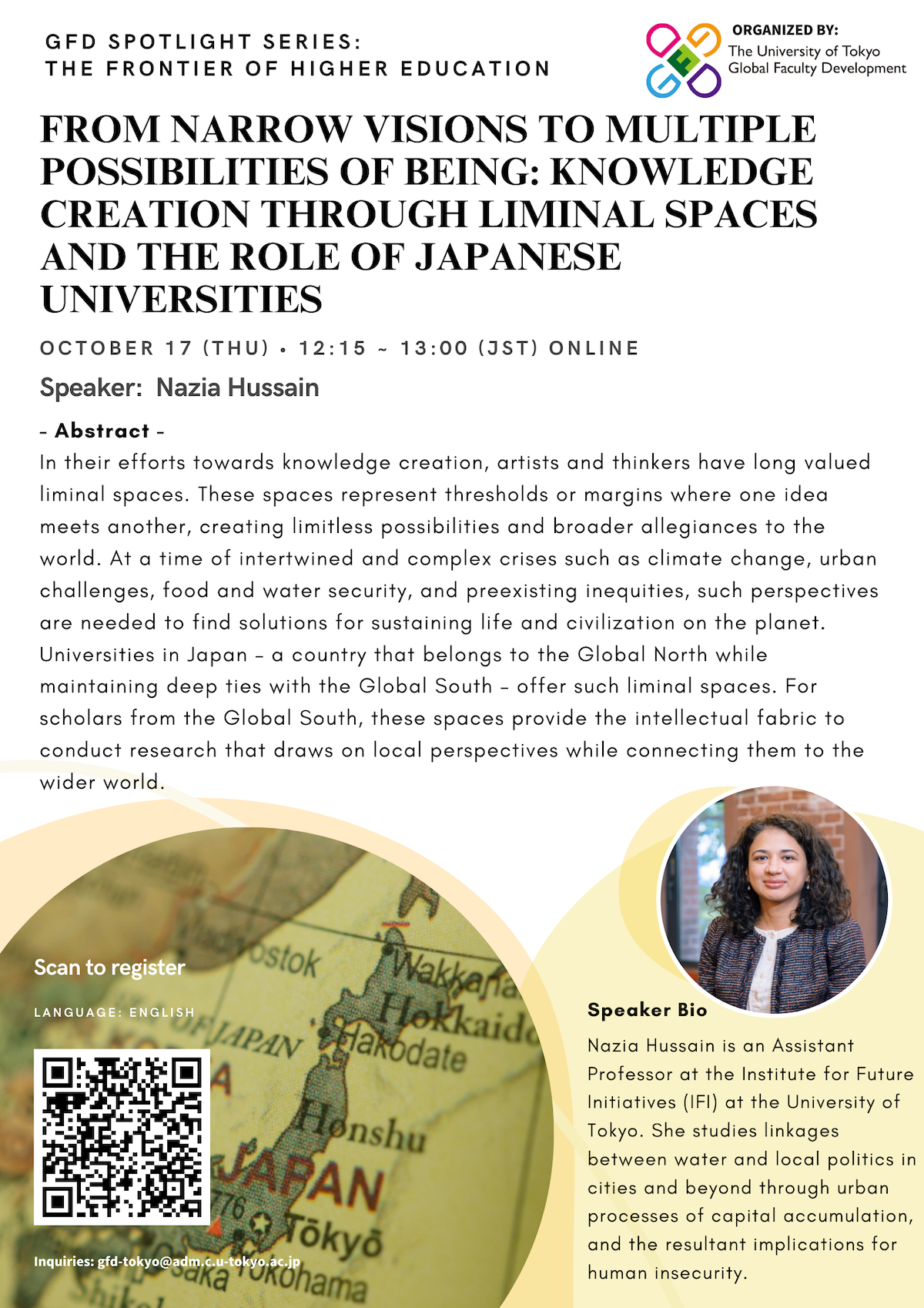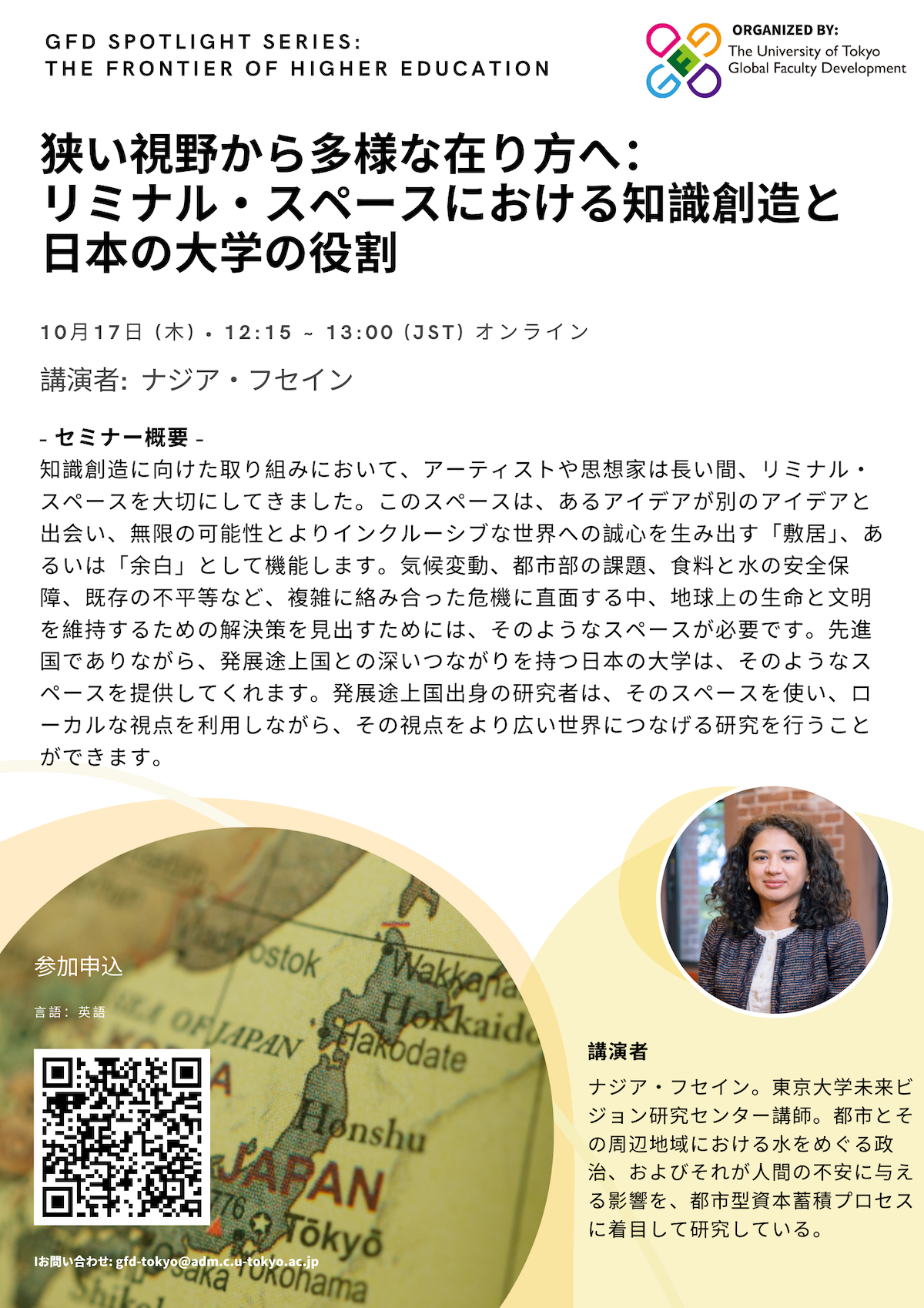
- Spotlight
10.17 Knowledge Creation through Liminal Spaces and the Role of Japanese Universities リミナル・スペースにおける知識創造と日本の大学の役割
Event Details
Date/Time: Thursday, October 17, 12:15-13:00 (JST)
Online: Zoom
Speaker: Nazia Hussain
Language: English(英語)
Speaker Bio

Nazia Hussain ナジア・フセイン
Nazia Hussain is an Assistant Professor at the Institute for Future Initiatives (IFI) at the University of Tokyo. She studies linkages between water and local politics in cities and beyond through urban processes of capital accumulation, and the resultant implications for human insecurity.
ナジア・フセイン。東京大学未来ビジョン研究センター講師。都市とその周辺地域における水をめぐる政治、およびそれが人間の不安に与える影響を、都市型資本蓄積プロセスに着目して研究している。
Learn moreAbstract
In their efforts towards knowledge creation, artists and thinkers have long valued liminal spaces. These spaces represent thresholds or margins where one idea meets another, creating limitless possibilities and broader allegiances to the world. At a time of intertwined and complex crises such as climate change, urban challenges, food and water security, and preexisting inequities, such perspectives are needed to find solutions for sustaining life and civilization on the planet. Universities in Japan – a country that belongs to the Global North while maintaining deep ties with the Global South – offer such liminal spaces. For scholars from the Global South, these spaces provide the intellectual fabric to conduct research that draws on local perspectives while connecting them to the wider world.
知識創造に向けた取り組みにおいて、アーティストや思想家は長い間、リミナル・スペースを大切にしてきました。このスペースは、あるアイデアが別のアイデアと出会い、無限の可能性とよりインクルーシブな世界への誠心を生み出す「敷居」、あるいは「余白」として機能します。気候変動、都市部の課題、食料と水の安全保障、既存の不平等など、複雑に絡み合った危機に直面する中、地球上の生命と文明を維持するための解決策を見出すためには、そのようなスペースが必要です。先進国でありながら、発展途上国との深いつながりを持つ日本の大学は、そのようなスペースを提供してくれます。発展途上国出身の研究者は、そのスペースを使い、ローカルな視点を利用しながら、その視点をより広い世界につなげる研究を行うことができます。
Contact
gfd-tokyo@adm.c.u-tokyo.ac.jp


